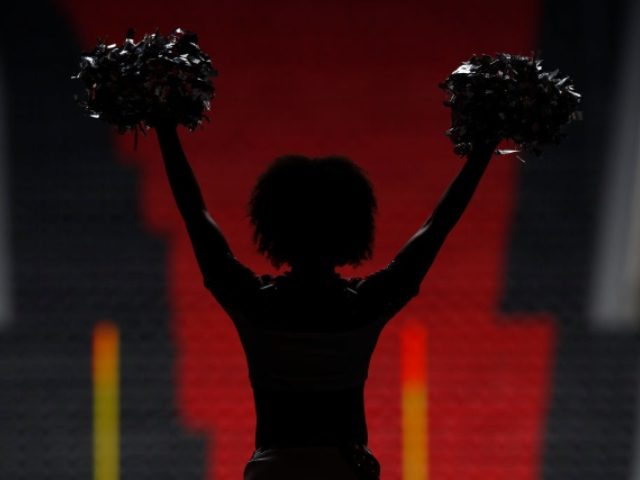It’s been years since a teen in Pennsylvania took to Snapchat to express her frustration in vulgar terms of not making the varsity cheerleading team. After a screenshot of the post led to her suspension from the squad for one year and a successful suit by the student only identified as B.L., four years later the case is heading to the United States Supreme Court.
“F*ck school, f*ck softball, f*ck cheer, fuck everything,” she wrote, with a photo of herself giving the middle finger.
After her parents, Lawrence and Betty Lou Levy sued the school district for the suspension the United States Court of Appeals for the Third Circuit ruled that the action violated B.L.’s First Amendment rights by trying to regulate her speech while off-campus.
Courthouse News reported in June on the developments in the case that led it to the High Court:
Last year, a federal judge ruled her snap is protected under the First Amendment. The Third Circuit, which heard arguments in the case this past November, affirmed that decision Tuesday. Writing for the three-judge panel, U.S. Circuit Judge Cheryl Ann Krause found B.L.’s speech is protected specifically because she made the snap off-campus.
“B.L. created the snap away from campus, over the weekend, and without school resources, and she shared it on a social media platform unaffiliated with the school,” Krause said in the 44-page-opinion.
The school had argued B.L. waived her free speech rights by agreeing to the cheerleading squad’s “Respect Rule,” but Krause disagreed.
“That would not cover a weekend post to Snapchat unconnected with any game or school event and before the cheerleading season had even begun,” Krause wrote. “And common sense supports this reading: It is hard to believe a reasonable student would understand that by agreeing to the Respect Rule, she was waiving all rights to malign the school once safely off-campus and in the world at large.”
The New York Times reported on what will happen next:
Next month, at its first private conference after the holiday break, the Supreme Court will consider whether to hear the case, Mahanoy Area School District v. B.L., No. 20-255. The Third Circuit’s ruling is in tension with decisions from several other courts, and such splits often invite Supreme Court review.
In urging the justices to hear the case, the school district said administrators around the nation needed a definitive ruling from the Supreme Court on their power to discipline students for what they say away from school. “The question presented recurs constantly and has become even more urgent as Covid-19 has forced schools to operate online,” a brief for the school district said. “Only this court can resolve this threshold First Amendment question bedeviling the nation’s nearly 100,000 public schools.”
The Times sought comment from Justin Driver a Yale law professor who wrote a book on the subject.
“It is difficult to exaggerate the stakes of this constitutional question,” Driver said, adding that schools had no business telling students what they could say when they were not in school.
“In the modern era, a tremendous percentage of minors’ speech occurs off-campus but online,” Driver said. “Judicial decisions that permit schools to regulate off-campus speech that criticizes public schools are antithetical to the First Amendment. Such decisions empower schools to reach into any student’s home and declare critical statements verboten, something that should deeply alarm all Americans.”
The only precedent is a case that predates the Internet and social media. In 1969, in Tinker v. Des Moines Independent Community School District, the Supreme Court let students wear black armbands to protest the Vietnam War but said disruptive speech, at least on school grounds, could be punished.
“In a brief urging the Supreme Court to hear the school district’s appeal, the Pennsylvania School Boards Association said the line the Third Circuit had drawn was too crude,” the Times reported.
“Whether a disruptive or harmful tweet is sent from the school cafeteria or after the student has crossed the street on her walk home, it has the same impact,” the brief said. “The Third Circuit’s formalistic rule renders schools powerless whenever a hateful message is launched from off campus.”
B.L., who is being represented by the American Civil Liberties Union (ACLU) told SCOTUS that the First Amendment protected her “colorful expression of frustration, made in an ephemeral Snapchat on her personal social media, on a weekend, off-campus, containing no threat or harassment or mention of her school, and that did not cause or threaten any disruption of her school.”
Follow Penny Starr on Twitter or send news tips to pstarr@breitbart.com

COMMENTS
Please let us know if you're having issues with commenting.